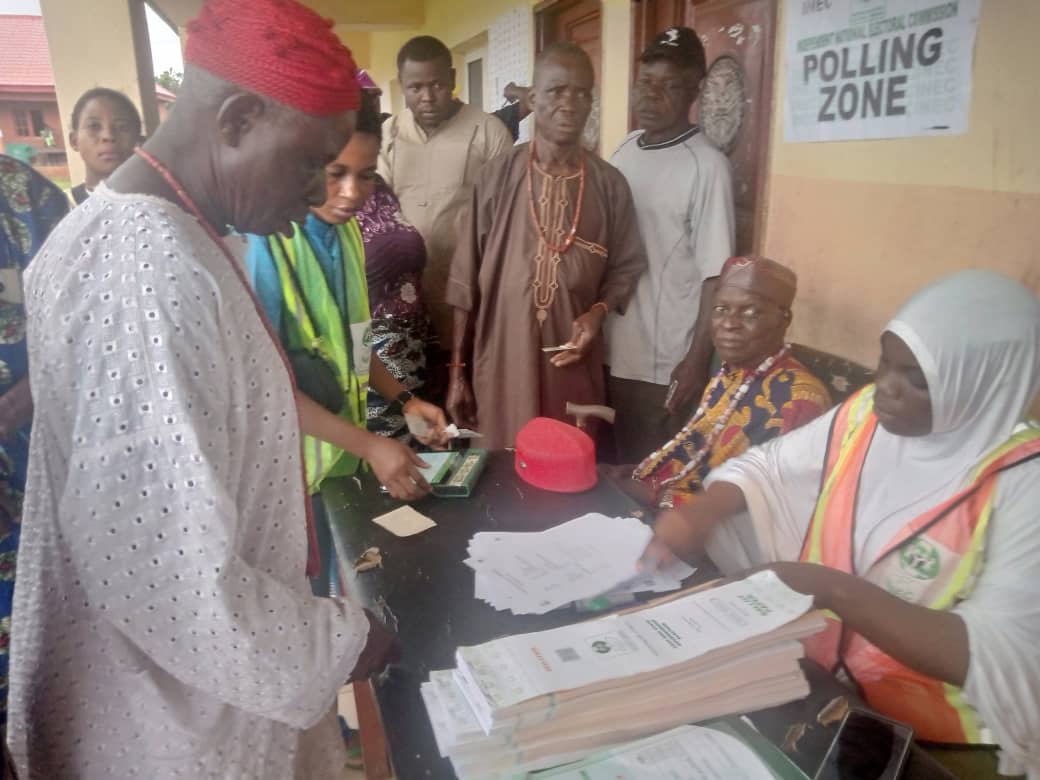The Ondo State governorship election held last Saturday failed to generate significant attention, unlike the recent off-cycle election in Edo State and last year’s Kogi, Bayelsa, and Imo polls. The lack of excitement was evident not only among the electorate in Ondo but also in public discourse, including on social media platforms.
The Independent National Electoral Commission (INEC) declared Governor Lucky Aiyedatiwa of the All Progressives Congress (APC) the winner after he secured 366,781 votes, defeating his closest rival, Agboola Ajayi of the Peoples Democratic Party (PDP), who garnered 117,845 votes. The African Democratic Party’s (ADP) Adeyemi Nejo placed third with 4,138 votes.
However, the opposition PDP and the Social Democratic Party (SDP) rejected the results and vowed to challenge the outcome at the election tribunal.
Unlike the palpable “election fever” usually associated with such events, the Ondo poll was subdued. Movement restrictions enforced by security personnel kept streets empty, but this was not accompanied by the usual anticipation of voters exercising their democratic rights. Many seemed indifferent to the process, perhaps believing the outcome was predetermined.
- Rising graduate unemployment requires urgent action
- N/Assembly approves Tinubu’s N1.77trn loan request
Social media platforms like X (formerly Twitter) and Facebook, which typically buzz with election-related content, were noticeably quiet.
Analysts attribute this to the absence of high-profile figures like former Governor Rotimi Akeredolu, who passed away earlier this year, and the low-key approach of former Governor Olusegun Mimiko.
Professor Chris Kwaja, Country Director at the United States Institute of Peace (USIP) and a board member of Yiaga Africa, highlighted two key factors contributing to the election’s low profile. He explained that the poll occurred at a relatively calm time in Nigeria’s political calendar, with no imminent national issue to heighten tensions. Additionally, Ondo’s history of peaceful elections meant there was little anticipation of violence or unrest.
“In states with a history of electoral violence, like Rivers, Kogi, or Edo, elections tend to draw more attention. Ondo, however, had no red flags during the pre-election period or the main election day,” Kwaja said.
Declining voter turnout
Observers also noted that the subdued atmosphere negatively impacted voter turnout, which fell to an unprecedented low of 24%. This marks a sharp decline from previous elections, which recorded 39% turnout in 2012, 35% in 2016, and 32% in 2020.
Paul James, Programme Manager for Elections at Yiaga Africa, observed that political mobilisation in Ondo was lacklustre compared to Edo, where intense activity was evident months before the election.
“It felt like the election had been pre-negotiated. While 18 political parties contested, many seemed to align with the ruling APC or expressed confidence in INEC’s management. This lack of competition and visible mobilisation contributed to the low voter engagement,” James said.
Economic hardship and marginalisation
Moses Oluwaseyi, a development expert specialising in democracy and inclusion, cited economic hardship and neglect of marginalised communities, such as persons with disabilities (PWDs), as additional factors.
“Economic inflation, transportation costs, and inadequate accessibility to polling units likely discouraged many PWDs from participating. Their absence also reduced the usual buzz generated by their active participation in campaigns and voting,” he explained.
Oluwaseyi added that general disillusionment with the electoral process further eroded public interest.
Reduced misinformation, vote buying, and public apathy
The Ondo election saw a notable decline in misinformation and fake news compared to the Edo poll. According to a report by the Centre for Democracy and Development (CDD), only 13 claims were fact-checked during the campaign period and election day in Ondo, compared to 61 claims in Edo—a 79% reduction.
In the report presented by Ms. Oluseyi Awojulugbe, a member of the CDD-EAC Observation Mission Ondo 2024, the CDD noted that while misinformation was present, it was less pervasive than in previous elections, and this contributed to the calmer atmosphere.
Some observers also suggested that the prevalence of vote-buying may have dampened public enthusiasm.
“When voters expect to trade their votes to the highest bidder, the competitive spirit of campaigns diminishes, reducing tension and interest in the election,” one analyst noted.
Observers and experts generally agreed that the subdued Ondo election underscored the need for sustained political engagement and mobilisation. They warned that declining voter turnout and public apathy posed huge risks to Nigeria’s democratic process. They urged political actors, civil society, and election management bodies to address these challenges to restore public confidence in elections.

 Join Daily Trust WhatsApp Community For Quick Access To News and Happenings Around You.
Join Daily Trust WhatsApp Community For Quick Access To News and Happenings Around You.


